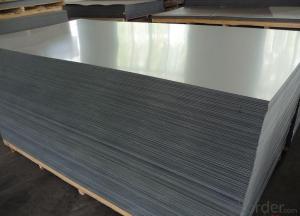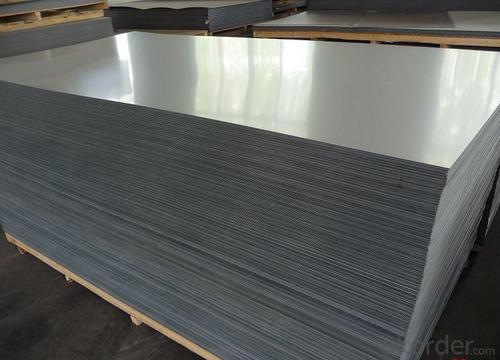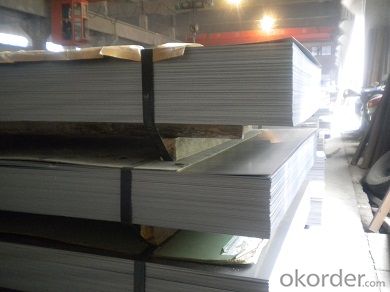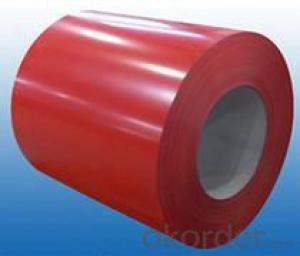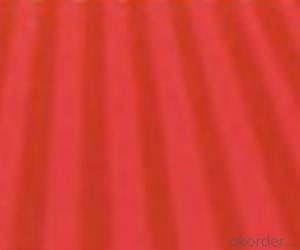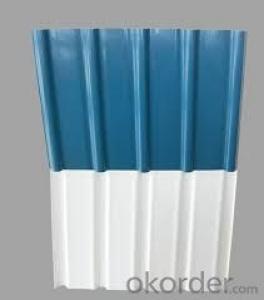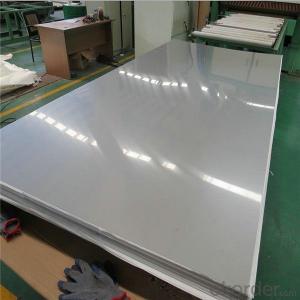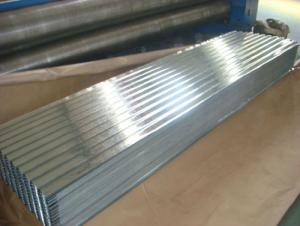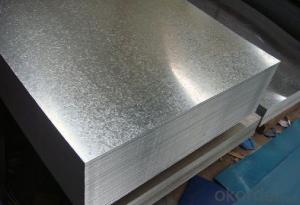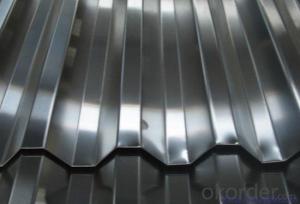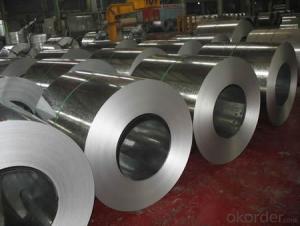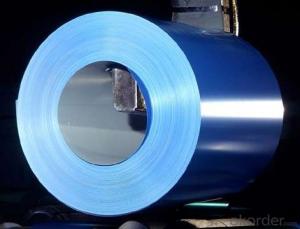High Quality Galvanized Steel sheet
- Loading Port:
- China Main Port
- Payment Terms:
- TT OR LC
- Min Order Qty:
- -
- Supply Capability:
- -
OKorder Service Pledge
OKorder Financial Service
You Might Also Like
Product Description:
Product Description:
Hot Dipped Galvanized Steel Coil
Hot-dip galvanized steel coils are available with a pure zinc coating through the hot-dip galvanizing process. It offers the economy, strength and formability of steel combined with the corrosion resistance of zinc. The hot-dip process is the process by which steel gets coated in layers of zinc to protect against rust. It is especially useful for countless outdoor and industrial applications.
Product Description Of Hot Dipped Galvanized Steel Coil
Thickness | 0.13mm-0.7mm |
Width | 600mm-1250mm |
Zinc Coating | 30-200g/m2 |
Internal Diameter | 508mm/610mm |
Coil Weight | 3-12MT |
Quality | commercial and structural quality |
Surface Treatment | regular & minimum spangle, zero spangle, oiled & dry, chromated , non-skin pass , skin pass |
Standard | JIS G 3302, ASTM A 653M, EN 10327 |
Steel Grade | SGCC, CS, FS, SS, LFQ, DX51D+Z , S280GD |
Technical Data Of Hot Dipped Galvanized Steel Coil
Chemical Composition | C | Si | Mn | P | S |
0.04-0.06% | 0.01-0.03% | 0.18-0.22% | 0.014-0.016% | 0.006%-0.009% |
Yield Strength | (Mpa) 280-320 |
Tensile Strength | (Mpa) 340-390 |
Elongation | 20%-30% |
Out-of-square | not exceed 1% Flatness |
Bow | 15mmmax |
Edge Wave | 9mmmax |
Centre Buckle | 8mmmax |
Bending At 180 Degree | No crack, purling and fraction |
Application Of Hot Dipped Galvanized Steel Coil
It can be widely used in transportation, light industry, civil usage and farming. It is also the perfect building material in construction for making roofing tile, steel profiles for wall partition, T-bar, studs, fireproof door, air conditioning duct and home appliance.
- Q: How are steel sheets protected during storage in humid environments?
- Steel sheets are typically protected during storage in humid environments through a process known as corrosion prevention. This involves implementing various measures to minimize the exposure of the steel sheets to moisture and humidity, which are the primary factors that contribute to corrosion. One common method is the application of a protective coating on the steel sheets. This coating acts as a barrier between the steel and the surrounding moisture, preventing direct contact and minimizing the risk of corrosion. There are different types of coatings available, such as paint, oil, or a specialized corrosion-resistant coating, depending on the specific requirements and conditions of the storage environment. In addition to protective coatings, steel sheets can also be stored in a controlled environment with regulated temperature and humidity levels. This helps to minimize the amount of moisture in the air surrounding the steel sheets, reducing the likelihood of corrosion. This controlled environment may be achieved through the use of dehumidifiers or climate-controlled storage facilities. Furthermore, proper handling and packaging of the steel sheets can also play a crucial role in protecting them during storage in humid environments. The sheets should be stored in a way that allows for adequate airflow and ventilation to minimize the accumulation of moisture. They should also be packaged in materials that provide an additional layer of protection against moisture, such as plastic wraps or moisture-resistant packaging materials. Regular inspection and maintenance are also important to ensure the ongoing protection of steel sheets during storage in humid environments. This includes checking for any signs of corrosion or damage and promptly addressing them to prevent further deterioration. Overall, a combination of protective coatings, controlled storage environments, proper handling, and regular maintenance are essential in safeguarding steel sheets from the effects of humidity and moisture during storage.
- Q: Are steel sheets suitable for automotive chassis?
- Yes, steel sheets are suitable for automotive chassis. Steel is a commonly used material in the automotive industry due to its strength, durability, and cost-effectiveness. Steel sheets provide the required structural integrity and support for the chassis, ensuring the safety of the vehicle and its occupants.
- Q: Can steel sheets be used in the energy sector?
- Yes, steel sheets can be used in the energy sector. Steel is a versatile material that offers several advantages for various applications in the energy industry. It is commonly used in the construction of power plants, transmission towers, and infrastructure for renewable energy sources such as wind turbines and solar panels. In power plants, steel sheets are used in the fabrication of boilers, turbines, and other components. Steel's high strength and durability make it suitable for withstanding the high temperatures and pressures involved in power generation processes. It also offers resistance to corrosion and erosion, ensuring the longevity of critical equipment. Steel sheets are also utilized in the construction of transmission towers and substations. These structures support power transmission lines and facilitate the efficient flow of electricity across long distances. Steel's strong mechanical properties make it an ideal choice for these applications, as it can withstand the weight and stresses imposed by power transmission infrastructure. Furthermore, steel sheets are vital in the manufacturing of wind turbines and solar panels. In wind turbines, steel is used for the tower structure, which must be strong enough to support the weight of the rotor and withstand the loads from wind forces. Additionally, steel sheets are used in the construction of solar panel frames, providing rigidity and stability for the photovoltaic modules. Overall, steel sheets are widely used in the energy sector due to their strength, durability, and resistance to various environmental factors. The versatility of steel makes it a reliable choice for a range of applications, helping to support the generation and transmission of energy in both conventional and renewable energy sources.
- Q: Are the steel sheets suitable for water tank fabrication?
- Steel sheets are indeed appropriate for the fabrication of water tanks. Due to their strength and durability, steel can tolerate the pressure exerted by water and offer vital structural reinforcement. Moreover, when adequately coated or treated, steel proves resistant to corrosion, thereby guaranteeing the purity and unspoiled nature of the stored water. Additionally, steel sheets are highly malleable and can be effortlessly shaped and molded to meet precise design specifications for water tanks. Consequently, steel sheets emerge as a dependable and widely employed material choice for the construction of water tanks.
- Q: Can steel sheets be used for agricultural fencing or enclosures?
- Yes, steel sheets can be used for agricultural fencing or enclosures. Steel sheets are highly durable and provide excellent strength, making them suitable for securing livestock and protecting crops. They can be formed into panels or rolls, allowing for easy installation and customization to fit different fencing or enclosure needs. Additionally, steel sheets are resistant to weathering, corrosion, and pests, ensuring long-lasting performance in agricultural environments. Overall, steel sheets are a reliable and effective choice for agricultural fencing or enclosures.
- Q: What are the common sizes of steel sheets available in the market?
- The common sizes of steel sheets available in the market vary, but some standard sizes include 4x8 feet, 5x10 feet, and 6x12 feet. These sizes are widely used in construction, manufacturing, and various industries for their versatility and ease of handling. However, it's important to note that steel sheets can also be custom cut to specific dimensions based on individual project requirements.
- Q: What are the different surface coatings available for steel sheets?
- There are several different surface coatings available for steel sheets, including galvanized coating, zinc-nickel alloy coating, tin coating, and organic coatings such as epoxy, polyurethane, and polyester. These coatings provide various levels of protection against corrosion, abrasion, and other environmental factors, and are chosen based on the specific application and desired performance of the steel sheets.
- Q: Can steel sheets be used for electrical transformers?
- Yes, steel sheets can be used for electrical transformers. Steel is often used as the core material in transformers due to its magnetic properties and ability to efficiently conduct magnetic flux.
- Q: Can the steel sheets be easily welded?
- Steel sheets can indeed be welded with ease. Joining steel sheets together is commonly achieved through the process of welding. This procedure entails melting the edges of the steel sheets, followed by allowing them to cool and solidify, resulting in a sturdy connection. It is worth mentioning, however, that the ease of welding may vary depending on factors such as the type and thickness of the steel sheets, as well as the expertise and experience of the welder. Furthermore, it is crucial to adhere to appropriate safety measures and welding techniques to guarantee a successful and secure welding procedure.
- Q: Are steel sheets available in textured finishes?
- Yes, steel sheets are available in textured finishes. Textured finishes can be achieved through various processes such as embossing, etching, or brushing. These techniques create patterns or textures on the surface of the steel sheet, giving it a unique and visually appealing appearance. These textured finishes not only enhance the aesthetic appeal of the steel sheet but also provide functional benefits like improved grip, reduced glare, or increased durability. Different types of textures can be applied to steel sheets to suit different applications and design preferences.
Send your message to us
High Quality Galvanized Steel sheet
- Loading Port:
- China Main Port
- Payment Terms:
- TT OR LC
- Min Order Qty:
- -
- Supply Capability:
- -
OKorder Service Pledge
OKorder Financial Service
Similar products
Hot products
Hot Searches
Related keywords
